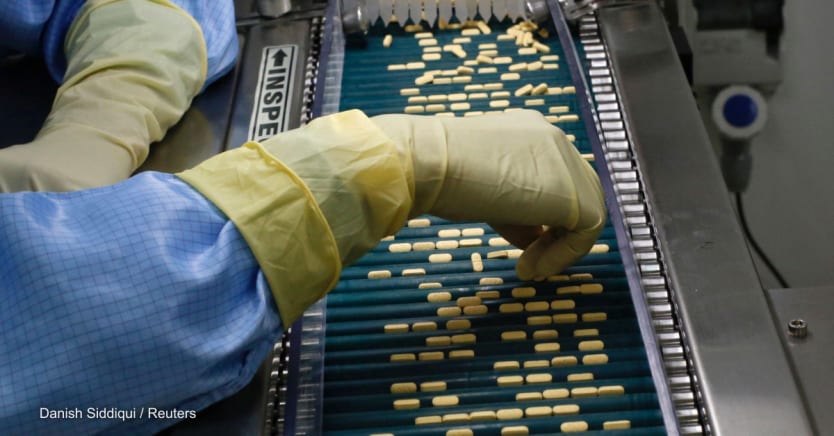
Organizations working in global health are hoping two new agreements announced this week will lead more countries to roll out shorter course treatments for tuberculosis prevention.
On Monday, Unitaid, the Clinton Health Access Initiative, and the Stop TB Partnership, through the Global Drug Facility, negotiated an agreement with Indian drugmaker Lupin to make a fixed-dose combination of rifapentine and isoniazid, taken once a week for three months under a regimen called 3HP, and available at $14.25 for a full-course treatment.
The same ceiling pricing for this treatment regimen will also be available from Indian generics manufacturer Macleods. The company has a volume guarantee agreement with MedAccess, a social finance company making volume and procurement guarantees to bring down drug prices.
Lupin will also make available 300mg single tablets of the drug rifapentine for $33.90 per 100 tablets.
Based on this pricing, a full course treatment of 300mg rifapentine and 300mg isoniazid tablets, taken once daily for one month, under a regimen called 1HP, would cost about $19.50 under the Global Drug Facility.
Why it matters: The new prices will be available in 138 countries. That includes all low- and middle-income countries, as well as Romania and Panama, as per a list seen by Devex.
TB is the second-leading infectious disease killer globally, after COVID-19, and an estimated 1.7 billion are living with latent TB infection — or are at risk of developing TB at some point. Without preventive treatment, 5% to 10% of these people will develop active TB in their lifetime, according to a news release by Unitaid. People living with HIV are also at high risk of developing TB.
Rifapentine-based short-course regimens “are the best available treatment to prevent tuberculosis,” Dr. David Ripin, executive vice president of infectious diseases and chief science officer at CHAI, wrote in an email to Devex.
“Previously, treatment required patients to take multiple pills daily for six or more months. By reducing the pill burden and treatment duration, patients are much more likely to complete their treatment. One study showed that 90% of patients on 3HP completed treatment (compared to 50% on an older regimen),” he said.
Over 2.6 million courses of the 3HP regimen have been rolled out in over 60 countries, according to Ripin, and he hopes more countries will do so in the coming months and years with the reduced pricing.
The price of $14.25 is 80% lower than the cost of the 3HP regimen when a four-year project aimed at introducing a new way to tackle latent TB infection was launched in 2017. According to Ripin, the cost of the 3HP regimen then was $72.
Meanwhile, the pricing for 300mg of rifapentine helps bring down the cost of treatment under the 1HP regimen.
“What makes this news exciting, is that the pricing agreement establishes right from the start an affordable price for an optimal treatment. For comparison's sake, using Sanofi's RPT 150mg formulation, the cost would have been around $25,” Ripin said.
Other barriers to access: According to TB experts, an ongoing challenge is the provision of preventive treatment to household contacts of TB patients. That requires improved contract tracing, as well as addressing hesitancy by both contacts and providers.
“There remains some hesitation to giving preventive therapy to close contacts who do not have active TB. As with other preventive therapies, the feeling is healthy individuals don’t want to take any medicines if they’re not currently sick,” Ripin said. “However, evidence shows household contacts are at a high risk of developing active TB. Treating these individuals can make a significant impact in preventing the spread of TB as well as deaths from the disease.”
Visit the Talking TB series for more coverage on how we can eliminate tuberculosis by 2030. The time for a paradigm shift and a renewed focus on funding, research, and global solutions is now. Join the conversation by using the hashtag #TalkingTB.



